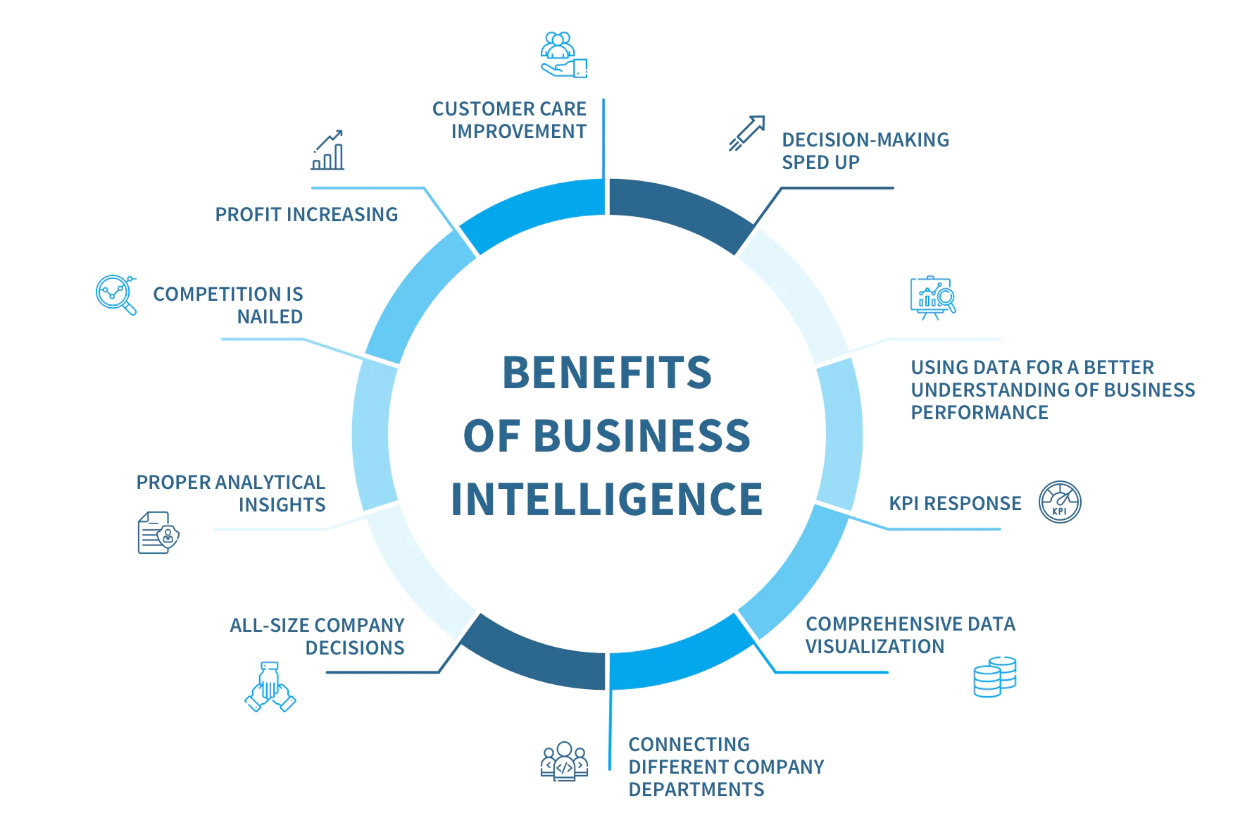Business intelligence (BI) has revolutionized the way organizations make data-driven decisions. It involves collecting, analyzing, and presenting data to provide insights that enable organizations to make informed decisions.
The use of BI tools has increased over the years, as organizations strive to stay competitive in their respective industries. This article discusses the role of business intelligence in driving success and how organizations can effectively leverage BI to gain a competitive edge.
Understanding Business Intelligence
Business intelligence is a process that involves gathering and analyzing data to provide insights that drive informed decision-making. This process involves several steps, including data collection, analysis, and presentation. BI can be used to gain insights into customer behavior, market trends, and other critical factors that affect an organization’s success.
Benefits of Business Intelligence
The use of business intelligence has numerous benefits, including:

Improved Decision Making
BI provides organizations with data-driven insights that enable them to make informed decisions. This data can help organizations identify areas that require improvement, opportunities for growth, and potential risks that need to be addressed.
Increased Efficiency
BI tools can automate data analysis, making it easier for organizations to identify patterns and trends. This saves time and resources, allowing organizations to focus on other critical aspects of their operations.
Competitive Advantage
By leveraging BI, organizations can gain a competitive advantage over their competitors. BI provides insights into market trends, customer behavior, and other critical factors that can help organizations stay ahead of the competition.
How Business Intelligence Drives Success
Business intelligence can drive success in several ways, including:

Customer Insights
BI can provide organizations with insights into customer behavior, including their preferences, needs, and buying patterns. This information can help organizations tailor their products and services to meet customer demands, leading to increased customer satisfaction and loyalty.
Operational Efficiency
BI tools can help organizations identify areas that require improvement, such as supply chain management, inventory control, and other critical operations. This enables organizations to streamline their operations, resulting in increased efficiency and reduced costs.
Improved Sales and Marketing
BI can provide organizations with insights into market trends, including consumer preferences, buying patterns, and competitive pricing. This information can help organizations develop effective sales and marketing strategies that drive revenue growth.
Best Practices for Implementing Business Intelligence
To effectively leverage business intelligence, organizations must follow certain best practices, including:
-
Data Quality
The quality of data used in BI is critical to its effectiveness. Organizations must ensure that data is accurate, complete, and relevant to their operations. This requires ongoing data governance and management practices to maintain data quality over time.
-
Data Security
Organizations must ensure that data is protected from unauthorized access, both internally and externally. This requires implementing robust data security measures, such as access controls, encryption, and data backup and recovery procedures.
-
User Training and Support
BI tools are only effective if they are used properly. Organizations must provide adequate training and support to users to ensure that they can effectively use these tools to make informed decisions.
Conclusion
Business intelligence is driving success for organizations by providing them with data-driven insights that enable them to make informed decisions. By effectively leveraging BI, organizations can gain a competitive advantage, increase efficiency, and drive revenue growth. To achieve these benefits, organizations must follow best practices for implementing BI, including ensuring data quality, implementing robust data security measures, and providing adequate user training and support.
In today’s data-driven business environment, organizations must use their data effectively to gain a competitive advantage. Business intelligence provides organizations with the tools and insights needed to turn their data into actionable insights, allowing them to make informed decisions and drive success.
Through the use of BI software, organizations can analyze data from various sources to gain a comprehensive understanding of their customers, operations, and market trends. With this information, they can identify areas for improvement and develop effective strategies to increase efficiency, revenue, and customer satisfaction.
While implementing a business intelligence strategy can be challenging, following best practices such as ensuring data quality, implementing robust data security measures, and providing user training and support can help organizations maximize the value of their BI investments.
In today’s rapidly evolving business environment, the ability to leverage data effectively is critical for success. By adopting a business intelligence strategy, organizations can gain the insights they need to drive growth and stay ahead of the competition.
FAQs
- What is business intelligence?
Business intelligence (BI) refers to the use of technology and processes to analyze data and provide actionable insights to support business decision-making.
- How does business intelligence drive success?
Business intelligence drives success by providing organizations with customer insights, improving operational efficiency, and helping organizations develop effective sales and marketing strategies.
- What are the benefits of using business intelligence?
The benefits of using business intelligence include improved decision-making, increased efficiency, better customer insights, and increased revenue.
- What are the best practices for implementing business intelligence?
Best practices for implementing business intelligence include ensuring data quality, implementing robust data security measures, and providing adequate user training and support.
- Can business intelligence be used in any industry?
Yes, business intelligence can be used in any industry where data analysis and insights are critical for making informed decisions.